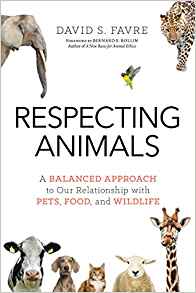Results
| Title | Citation | Alternate Citation | Agency Citation | Summary | Type |
|---|---|---|---|---|---|
| DC - Restaurant - Subchapter VII. Dining with Dogs. | DC CODE § 8-1865.01, .02 | These laws from 2018 allow food establishments in D.C. to permit dogs in outdoor dining areas of food establishments or unenclosed sidewalk cafés. These establishments must post signage outside that states dogs are permitted along with any restrictions on dogs based on size or temperament. They must also provide an entrance that does not require dogs to enter an indoor dining area or an area in which food is being stored or prepared to access the outdoor dining area and provide patrons with waste bags and a means of proper disposal. Patrons must keep their dog in a carrier or on a leash at all times and never leave the dogs unattended. | Statute | ||
| FL - Lost Property - Lost or Abandoned Property | West's F. S. A. § 705.101 - 19 | FL ST § 705.101 - 19 | These Florida statutes comprise the state's lost property statutes. | Statute | |
| VA - Exotic Pets - Chapter 30. Definitions and Miscellaneous | 4 VA ADC 15-30-5 to 60 | 4 VAC 15-30-5 to 60 | The following regulations implement Virginia's exotic pet laws. | Administrative | |
| IN RE: PET PARADISE, INC. | 51 Agric. Dec. 1047 (1992) | 1992 WL 240852 (U.S.D.A.) | Where complaint advised respondent of exact matters at issue, there is no basis for dismissing any allegations of complaint merely because they failed to specify subsections of regulations or standards involved in some of alleged violations. Formalities of court pleading are not applicable in administrative proceedings. Findings of fact need only be supported by a preponderance of the evidence. A violation is willful if the person intentionally does an act which is prohibited or acts with careless disregard of statutory requirements. | Case | |
| Animal Legal Defense Fund v. Reynolds | 297 F.Supp.3d 901 (S.D. Iowa Feb. 27, 2018) | 2018 WL 1151000 (S.D. Iowa Feb. 27, 2018) | In 2012, Iowa passed a statute (Iowa code § 717A.3A) that criminalized gaining access to agricultural facilities under false pretenses and making a false representation on a job application for those facilities. Plaintiffs in this case (animal rights groups including the Animal Legal Defense Fund and PETA) brought suit alleging that the statute was unconstitutional and sought to enjoin the Defendants (governor of Iowa) from enforcing it. Their complaint alleged that the statute violates the First Amendment as discrimination on the basis of content, the Equal Protection Clause of the Fourteenth Amendment by targeting animals rights groups, and violates the Due Process Clause of the Fourteenth Amendment by burdening the freedom of speech. This case decides the Defendants’ motion to dismiss the Plaintiffs’ complaint based on lack of standing and failure to state a claim because the outlawed conduct is not protected by the First Amendment as false statements and is rationally related to the legitimate government interest of protecting private property, thereby not violating the Fourteenth Amendment. The court denies Defendants' motion with respect to the First Amendment, concluding that Plaintiffs have plausibly alleged the intent to suppress their message because of their viewpoint. However, the court grants the motion to dismiss for the claim of a Fourteenth Amendment violation because the statute in fact serves a legitimate government purpose in protecting private property. | Case | |
| CT - Fisheries & Wildlife - Chapter 490. Fisheries and Game. § 26-1. Definitions | C. G. S. A. § 26-1 | CT ST § 26-1 | This law contains definitions for the Connecticut Fisheries and Wildlife Department. | Statute | |
| DICKERSON v. BRITTINGHAM. | 86 A. 106 (Del.Super. 1913) | 4 Boyce 93, 27 Del. 93 (1913) |
In this Delaware case, the plaintiff brought an action against the defendant to recover damages for the death of plaintiff's horse, alleged to have been caused by the negligent driving by the defendant of his team. This resulted in a head-on collision, which caused the death of the horse days after. The jury found in favor of the plaintiff. On appeal, the court held that if the jury believed from the evidence presented that the defendant was driving without ordinary care, the verdict should stand for the plaintiff. |
Case | |
| U.S. v. 3,210 crusted sides of Caiman crocodilus yacare | 636 F.Supp. 1281 (S.D. Fla. 1986) |
The plaintiff, the United States of America, seeks forfeiture of the defendant, 10,870 crusted sides of Caiman crocodilus yacare, an endangered species of wildlife (hides) transported from Bolivia to the U.S. in violation of the Lacey Act, among other statutes. The court found that the testimony concerning the shrinkage of the crocodile hides during tanning did not meet the buren of the claimed owners showing by a preponderance of the evidence that the hides, which were shipped from Bolivia under the size limit imposed by Bolivian law, were not subject to the forfeiture provisions of the Lacey Act, 16 U.S.C. § 3374(a)(1) (1985). The provision of the Lacey Act at issue prohibits the interstate or foreign commerce of any wildlife taken in violation of any foreign law. |
Case | ||
| Respecting Animals: A Balanced Approach to Our Relationship with Pets, Food, and Wildlife |
|
Policy | |||
| EU - Farming - COUNCIL DIRECTIVE 93/119/EC on the protection of animals at the | COUNCIL DIRECTIVE 93/119/EC |
This directive reflects the EU's concern for a need to establish common minimum standards for the protection of animals at the time of slaughter or killing in order to ensure rational development of production and to facilitate the completion of the internal market in animals and animal products. The directive also states that at the time of slaughter or killing animals should be spared any avoidable pain or suffering. |
Statute |
